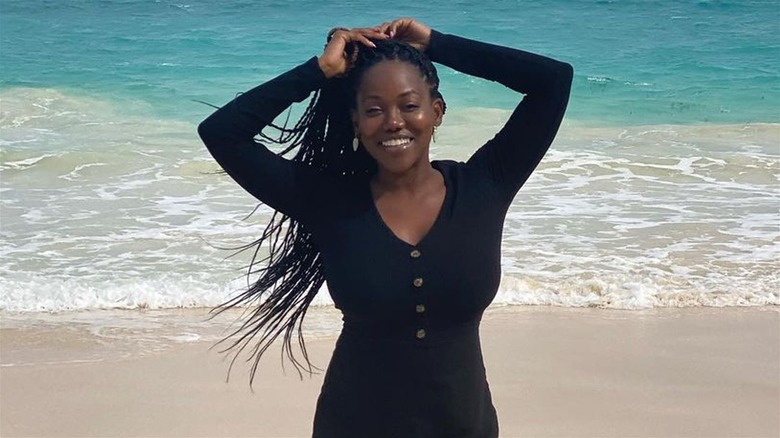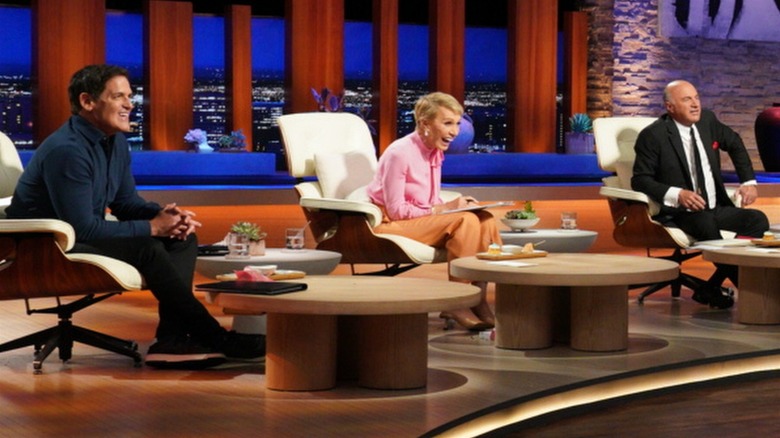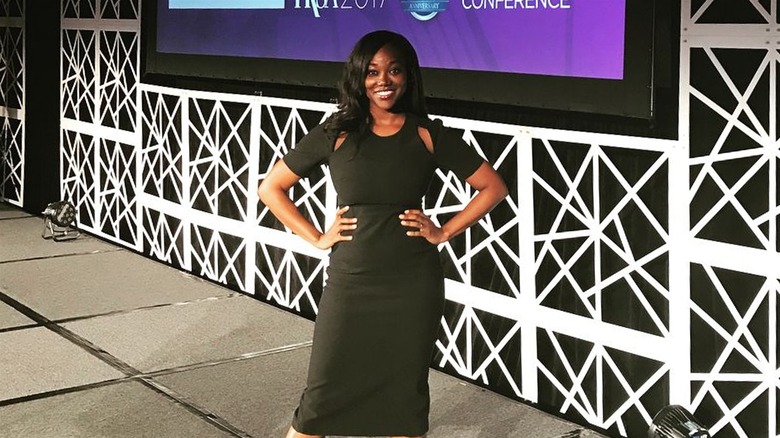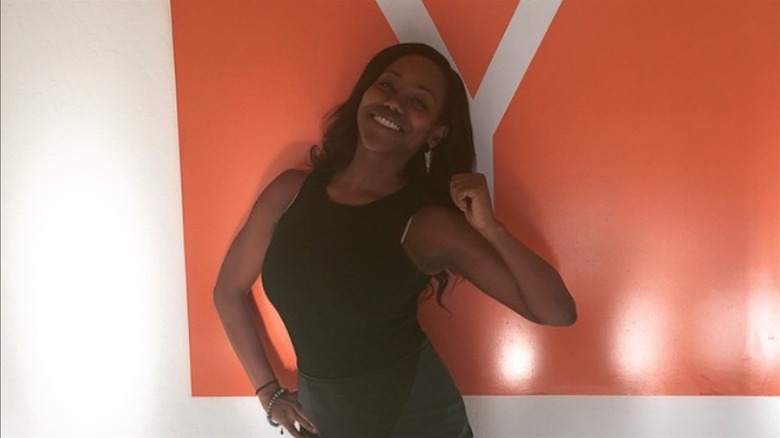Here's What Went Down With Pretty Padded Room After Shark Tank
Bea Arthur (no, not that one) is the woman behind Pretty Padded Room. The entrepreneur launched the service in 2011 after failing to see success with her first business, Me Too — a social club for moms. "My business failing devastated me. I became depressed but didn't want to ask any of my friends for referrals, and as a 25-year-old counseling therapist, I myself didn't really have the money to afford therapy," she recalled to Fast Company in 2013. But rather than let that dark period shut the lights on her dreams, Arthur remained determined. Before long, she came up with a solution that would help herself and others.
That idea became Pretty Padded Room, a service designed to make psychotherapy more readily available to the masses without asking the consumer to shell out hundreds of dollars. Along with offering support services, Arthur told Fast Company the business's goal was to destigmatize the act of asking for mental health help. "I decided to take it [therapy] where you take all other dark secrets and make something on the Internet. I felt like we could reject the stigma of counseling by embracing it and placing it on a platform that is accessible," she explained. And, after seeing some success, she decided to take the business to "Shark Tank" to get some expert backing.
Pretty Padded Room didn't have much success on Shark Tank
Bea Arthur presented Pretty Padded Room on Season 4 of "Shark Tank," which aired in February 2013. She pitched to Mark Cuban, Daymond John, Kevin O'Leary, Barbara Corcoran, and Robert Herjavec, looking to give away 30% equity for a $100,000 investment. As a licensed psychotherapist, Arthur explained the benefits of accessible therapy and explained that she already had nine women therapists working with her. She also shared that the company had made $21,000 in sales that year.
The Sharks then began to question Arthur on her numbers — but Arthur wasn't confident with figures and fumbled her answers. That was a major turn-off for the entrepreneurs. Cuban wasn't convinced by Arthur's business knowledge, so he was out, while Herjavec didn't believe in the company's ability to retain customers. Corcoran noted that she felt Arthur needed someone to go in with her to take on the financial side of the business, but declared it wouldn't be her. As for John, he told Arthur the numbers just weren't cutting it, so he too wasn't going to invest. O'Leary then followed suit with his fellow Sharks, and also wasn't willing to make an investment. So, just like Silkroll, Pretty Padded Room left the tank without a deal.
Sadly, that tough time left quite a mark on Arthur. "It was not a great experience," she told CSQ in 2022. "I remember after that I cried on every subway in New York for about six weeks."
Bea Arthur's business did land an investment elsewhere though
After failing to get funding on "Shark Tank," Bea Arthur continued to work on the business. In 2013, she told Fast Company she took the Shark's advice and started working with financial advisors. She also noted that she managed to get the funding she needed for Pretty Padded Room from another source. "I was able to secure some outside funding by getting a better understanding of the numbers," she noted. And Arthur did a lot with the money she received without the Sharks' help. "I was able to hire business and software developers that have fixed all the bugs in the platform. Because I opened myself up to criticism, I was able to identify issues, perfect my pitch, and move my business forward," she shared. Arthur also told Shark Tank Blog that she'd hired a CTO to work alongside her on the business, and decided to rebrand Pretty Padded Room to Into Your Corner.
Those decisions paid off, because Arthur told Forbes in 2016 that the company had thousands of clients in an impressive 23 countries, and she became the first African-American founder to get a company accepted into Y Combinator. "I started to get invited for TV appearances and even did my first TEDx talk last year! We raised money. Better yet, we made money. With no new features and no paid marketing, our total gross revenue for 2015 was $418,975," she added. But, sadly, that success just didn't last.
Pretty Padded Room/In Your Corner folded in 2015
According to Bea Arthur's LinkedIn, Pretty Padded Room/In Your Corner came to an end in 2015. Speaking to Forbes the following year, Arthur explained the company had reached the point where it was no longer sustainable. "As CEO, I sometimes made heart decisions instead of smart decisions, which led to debt, burnout and our eventual end," she said, also noting, "As a solo, non-technical founder, I had no way of building the platform I envisioned." The entrepreneur also shared some advice for those in a similar position. She admitted she wished she hadn't become so distracted and done more research about her business needs, as well as set more boundaries.
"I really, really, really didn't want to close it, but I needed to. The debt and stress of doing everything by myself burned me out beyond recognition, and I had started to feel like the janitor instead of the CEO," Arthur shared to Forbes. However, she did take some positive out of the experience, particularly through all the people the now defunct business helped. "I got to live my dream for five years and I have no regrets, only valuable lessons and I'm better for it," she said.
Bea Arthur is now focused on another business, The Difference
Now that Pretty Padded Room/In Your Corner has had its day, Bea Arthur has moved on to focus on other business ventures. Per her LinkedIn, it looks like she put her business knowledge to good use by becoming a host and editorial contributor at Forbes in 2016. She later founded The Difference, which appears to be an on-demand therapy service similar to Pretty Padded Room. The platform offers people the chance to speak instantly over the phone to licensed therapists when they need them. The service can even be accessed via an Amazon Alexa. The service offers two plans, the Pep Talk Plan, which assigns someone to a therapist within 30 minutes, or the Partner Plan, which allows people to speak to the same therapist every time.
And it seems like The Difference is still available to fund. The company has an iFundWomen page, which had raised $41,400 (with a goal of only $10,000) from 63 funders as of February 2024.



